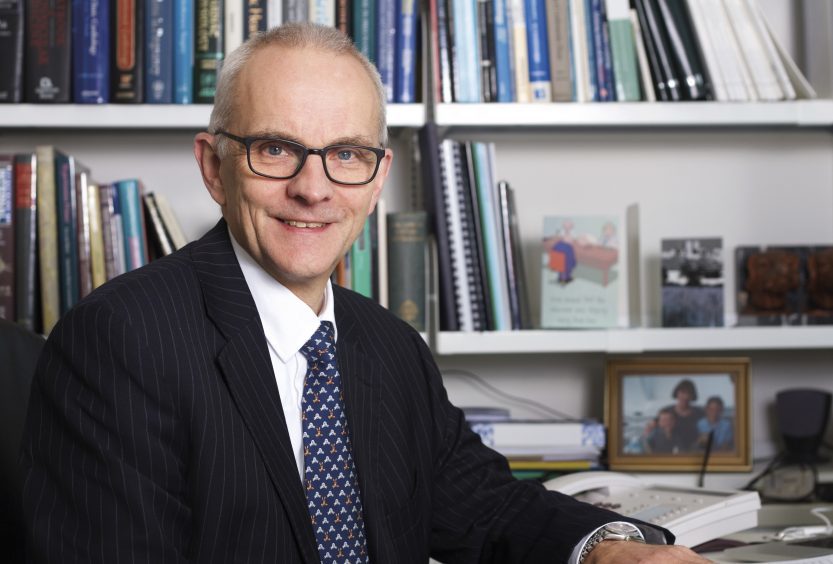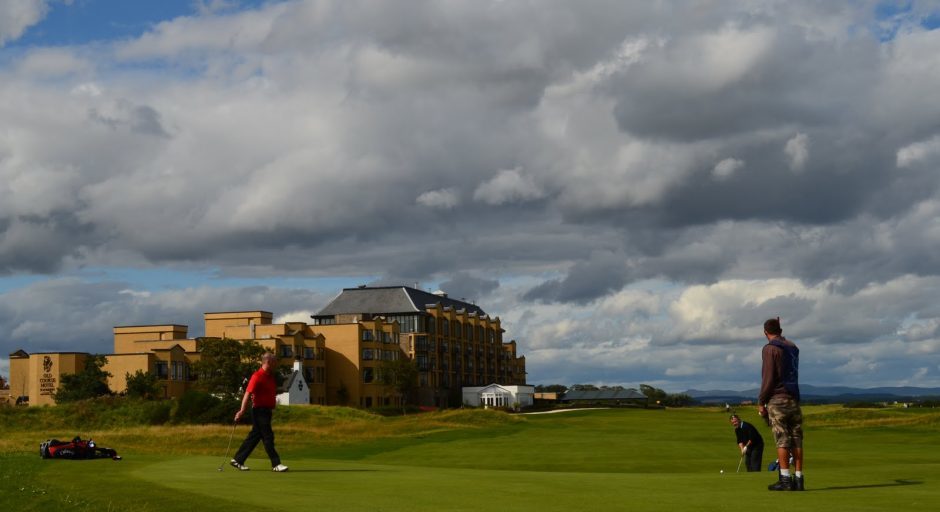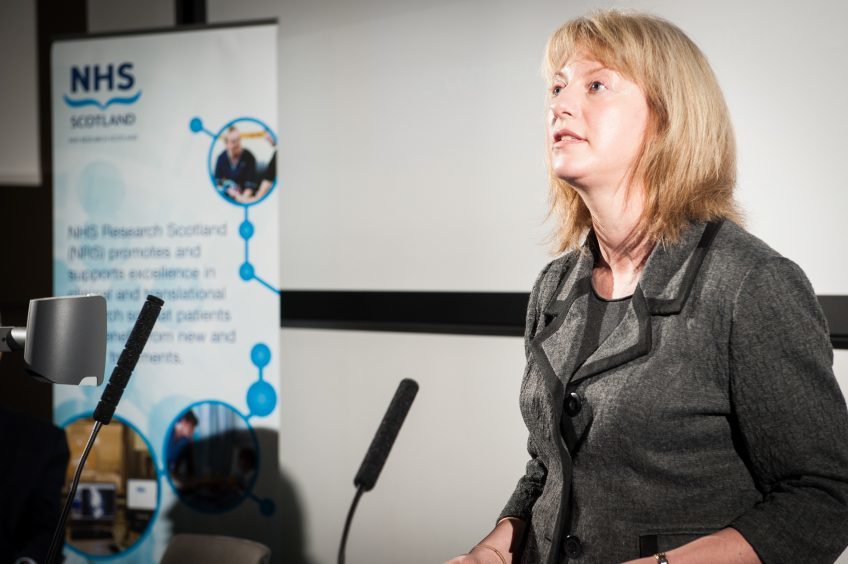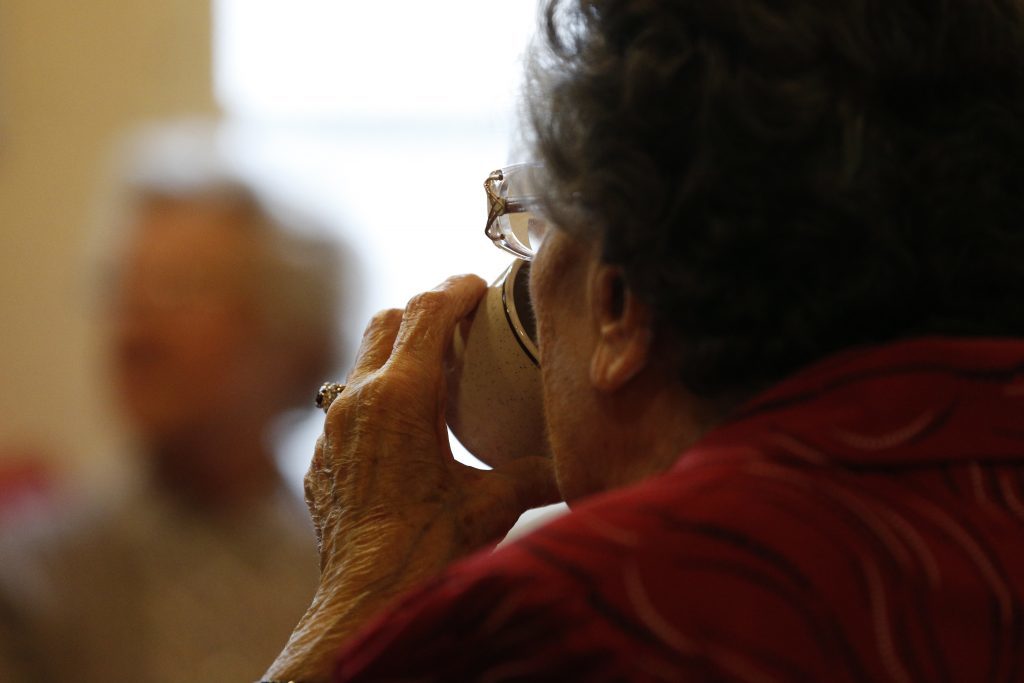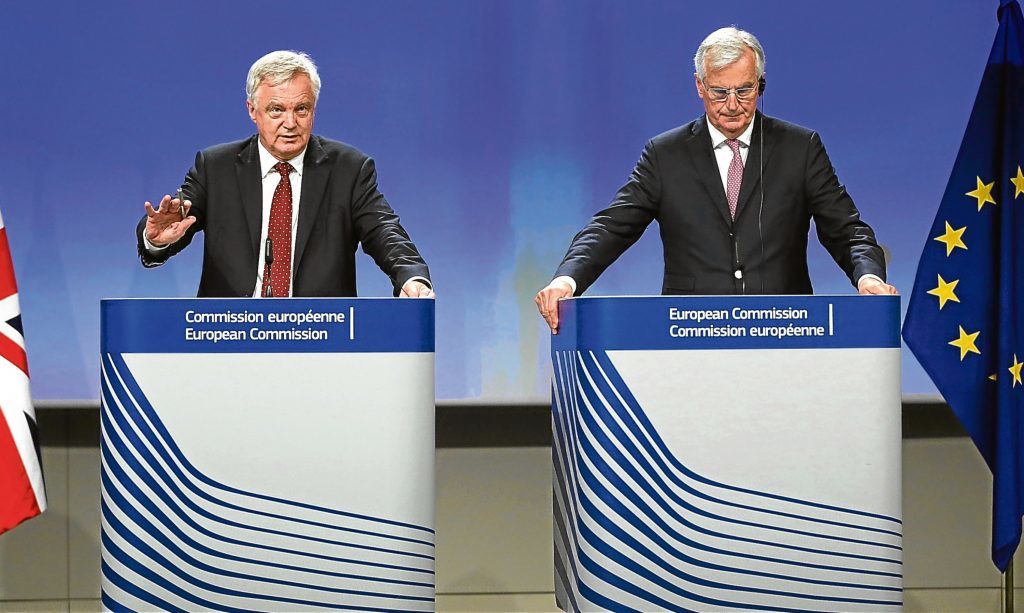Scotland’s new Chief Scientist for Health, Professor David Crossman of St Andrews University, talks to Michael Alexander about the state of the NHS, the challenges and opportunities ahead, and his “worry” about Brexit.
If there were prizes for the most dramatic views visible from an office window, then the panorama across the Old Course enjoyed by Professor David Crossman, currently Dean and head of the School of Medicine at St Andrews University would be right up there with the best of them.
The 60-year-old cardiologist, who moved from Norwich to St Andrews in 2014, describes Scotland’s oldest university as “a wonderful place to work”.
“The standards are terribly high for everything that it does and I rather like that,” he says.
Now Professor Crossman is hoping to take these high standards to another level having been appointed the new Chief Scientist for Health with the Scottish Government.
While he will retain his post at St Andrews and continue working one afternoon each week with cardiology outpatients at the Victoria Hospital in Kirkcaldy, he has been seconded to the Scottish Government post two days per week as of Wednesday this week.
The role, previously held by Professor Andrew Morris, formerly of Dundee University, oversees and funds research for the devolved NHS in Scotland.
And against a backdrop of medical breakthroughs, an ageing population and rising costs, Professor Crossman says it is a “very exciting time” to be taking on the post.
“I think the vision for the next three years is to give the Chief Scientist office and what it does a brand makeover,” he says.
“I think people don’t know how much research is going on in the NHS in Scotland.
“I want Scotland to be proud of that and want to do more. I think the opportunities for research, development, innovation need to be available more widely, and by that I mean spread across Scotland so that anyone who wants to do it can apply with a realistic prospect of doing it.
“I think the big task is to get the NHS research spend aligned with the life sciences agenda and building economic growth.
“So not only are we making people better and healthier but we are doing something for the Scottish economy.”
Born in Gravesend, Kent, Professor Crossman’s earliest memory of the NHS is as a 10-year-old when he got his tonsils out followed, just six weeks later, by his appendix. It was while recovering that he decided he wanted to be a cardiologist.
“Christiaan Barnard did the first heart transplant as I was recovering from my appendix,” he recalls.
“I saw all these pictures in the paper and I thought I want to do that!”
He qualified in medicine in 1982 from St Bartholomew’s Hospital, London and has worked in Hammersmith, Sheffield and Norwich with a research interest in the inflammatory basis of coronary artery disease.
Professor Crossman says there’s no doubt the NHS is a “huge success story”.
He describes as “extraordinary” what can be done for patients now and what’s round the corner for previously untreatable conditions.
Thanks to research and development, he is amazed how many heart attack victims can now survive and go on to lead normal lives. Cancer treatments are improving. Digitisation of health care and the roll out of the genomics genetics revolution will undoubtedly continue bringing closer the day, he says, when everyone has their genome, or genetic code, on a chip.
He says governments of all persuasions should be congratulated for pushing to ensure the NHS is for “absolutely everyone” – from the very young, to the very disabled to the very old.
But the price of that universality and new therapies is that it adds massive pressure to the system and is terribly expensive.

“There are definitely efficiencies to be made and, as a personal thing I think it’s difficult to ask for more money until savings have been ironed out really,” he says, adding that a major challenge is the bringing together of the old fashioned NHS with social care – traditionally provided by local authorities.
“That interface is absolutely at the front of Scottish Ministers’ minds and is a huge challenge,” he adds.
What he says the Chief Scientist should be doing is providing a research base and data to support the ambitions of Ministers to tackle these problems.
Professor Crossman said he agrees there is a very real existential threat to humanity from a well-documented “antibiotics apocalypse” – that is antibiotic resistance caused by decades of over-prescription of antibiotic drugs.
“It’s one of the grand challenges we face and is up there with water, climate, food, energy and precious mineral resources,” he says.
However, in more immediate terms he also worries about the impact of Brexit.
“I am, like everyone in the sector, worried about Brexit,” he says.
“I think quite a lot of that worry is driven by uncertainty.
“I personally am deeply saddened about it.
“I think our sector – that is academia, research and health – is one that has enjoyed free movement of people. The ability to recruit the best academics from all around the world has served Britain extremely well.
“Universities like St Andrews, Edinburgh and Glasgow have been literally been advanced by the talent they’ve been able to recruit.
“Brexit doesn’t mean to say we have to stop doing that.
Funding
“But there’s a suspicion amongst many that one of the motives for Brexit was to stop it.
“Then on the funding side, the way that European biomedical research funding and science funding as a whole works is we put some money into a pot, as do all the other European countries, but we do really rather well out of it. We get more back.
“I’m hopeful that government or those doing the negotiation for Brexit have heard the importance of this.
“But nobody likes uncertainty and certainly people who have other options at times of uncertainty – and they are usually the best people – vote with their feet. It’s a worrying time.”
